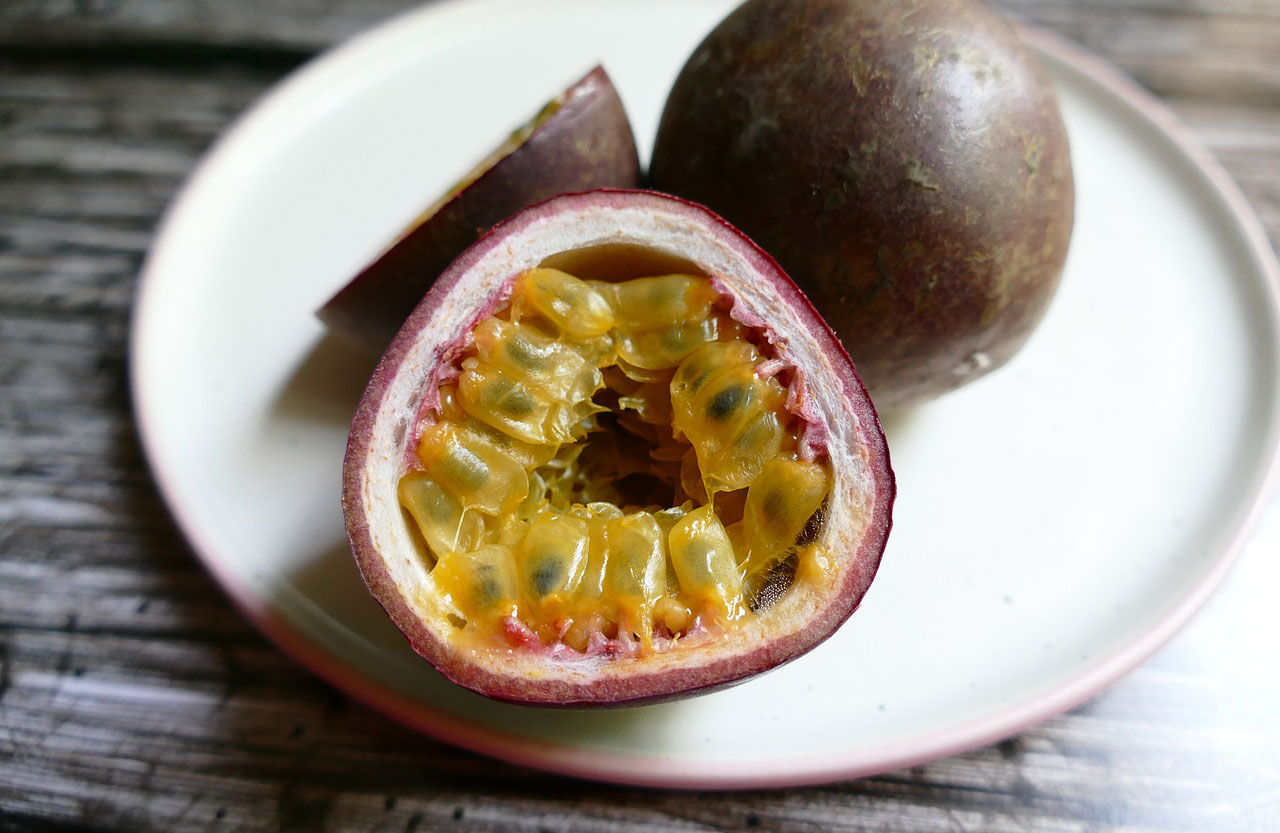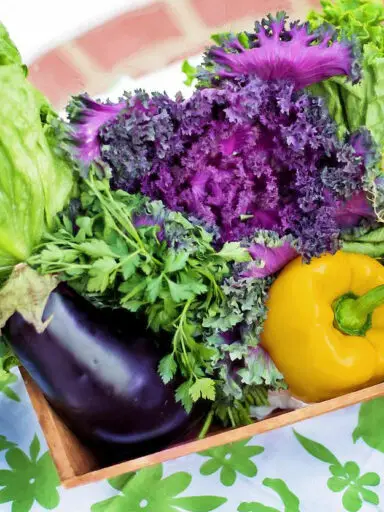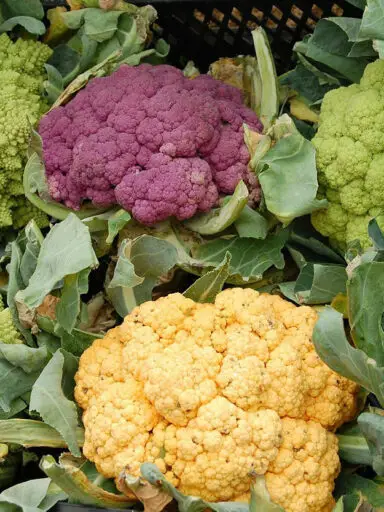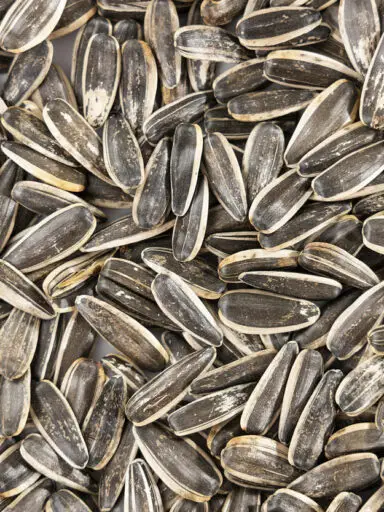Passion fruit is a sweet oval juicy fruit with numerous beady seeds. It has leathery skin and pulp that is usually eaten or juiced. The skin is usually green and turns yellow or dark purple when ripe.
It is native to Brazil, Paraguay, and northern Argentina. It is also known as passionfruit in UK and Commonwealth countries and purple granadilla in South Africa. The Brazilians call it Maracuja and Lilikoi is what it’s called in Hawaii. Today it is grown widely in sub-tropical and tropical regions around the globe.
This tropical fruit can be stored refrigerated for a few days in a cool and dark place. Overly ripe fruits can be stored in the refrigerator.
Culinary Uses of Passion Fruit
To extract the insides, simply wash the fruit then cut it in half with a sharp knife. You can then scoop the insides pulp with a spoon.
The pulp can be eaten as is or put through a juicer and drank as a sweetened fruit drink on its own as part of an alcoholic or non-alcoholic cocktail.
It can also be used to impart additional flavor to fruit salads, puddings, sweets, and desserts.
Health Benefits of Passion Fruit
Passion fruit contains plenty of water, sugar, and carbohydrates. It is also rich in vitamin A and contains flavonoid antioxidants such as carotene and cryptoxanthin.
It also contains vitamin C, dietary fiber, B vitamins riboflavin and niacin, iron, and phosphorus. This fruit is a rich source of antioxidants, minerals, and 100g of the fruit contains 97 calories. The minerals found in passionfruit include Iron, copper, magnesium, phosphorus, and Potassium.
In a nutshell, this fruit helps with the body cells and body fluids. It also helps regulate the heart rate and blood pressure. The fruit is also great for the eyes and helps the body be resistant to flu.




